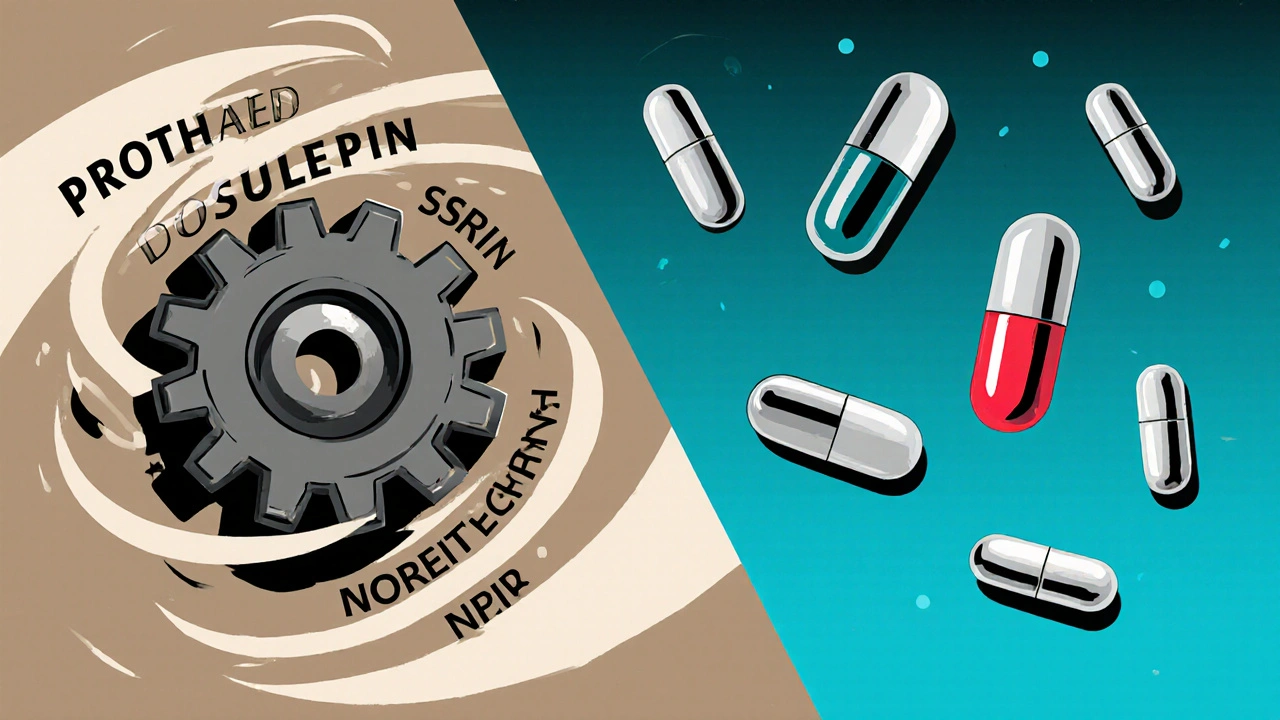Anxiety Medication: What Works, What to Avoid, and How to Use It Safely
When you're stuck in a loop of worry, panic, or constant tension, anxiety medication, prescribed drugs designed to reduce excessive fear and nervous system overactivity. Also known as anti-anxiety drugs, these are not magic pills—but when used correctly, they can give you back control over your daily life. Many people start with SSRIs, a class of antidepressants that increase serotonin levels to calm the brain’s fear circuits, like paroxetine or sertraline. These aren’t fast-acting, but they’re the most common long-term solution because they don’t cause dependence. They’re also the same drugs used for depression, which makes sense—since anxiety and depression often show up together, especially when childhood trauma or chronic stress has worn down your mental resilience.
Then there’s benzodiazepines, fast-acting sedatives that boost GABA to quickly quiet nervous system signals, like alprazolam or clonazepam. These work in minutes, not weeks. But they’re not meant for daily, long-term use. Why? Because your brain adapts. Tolerance builds fast. Withdrawal can be worse than the anxiety you started with. And mixing them with painkillers, sleep aids, or even alcohol? That’s how overdose happens. It’s not rare—it’s documented. One study found that over 30% of benzodiazepine-related ER visits involved another drug, like opioids or NSAIDs. That’s why you need to know what else you’re taking. Your anxiety meds don’t live in a vacuum. They interact with statins, blood thinners, and even some OTC cough syrups. A simple combo like paroxetine and ibuprofen can raise bleeding risk. A benzodiazepine with a muscle relaxant? That’s a recipe for slowed breathing. You’re not just treating anxiety—you’re managing a system.
There’s no one-size-fits-all. What helps your neighbor might make you feel worse. Some people do great on SSRIs. Others need therapy first. A few find relief with newer options like buspirone, which doesn’t cause drowsiness or dependence. But if you’re struggling with side effects, or your meds aren’t working after a few months, don’t just push through. Talk to your doctor. Check if your dose is right. Look into whether something else—like a thyroid issue or low vitamin D—is hiding behind the anxiety. The posts below cover real cases: how paroxetine affects mood regulation, why statin interactions can worsen anxiety symptoms, and how mixing OTC meds with prescriptions can backfire. You’ll find guides on what to ask your pharmacist, how to spot signs you’re over-relying on meds, and what alternatives exist when the first choice fails. This isn’t about quick fixes. It’s about making smart, safe choices so your medication works for you—not against you.
Compare Prothiaden (Dosulepin) with Alternatives: What Works Best for Depression and Anxiety
Compare Prothiaden (Dosulepin) with modern antidepressants like SSRIs, SNRIs, and mirtazapine to find the best fit for depression and anxiety treatment. Learn about effectiveness, side effects, and when to switch.
Read more
